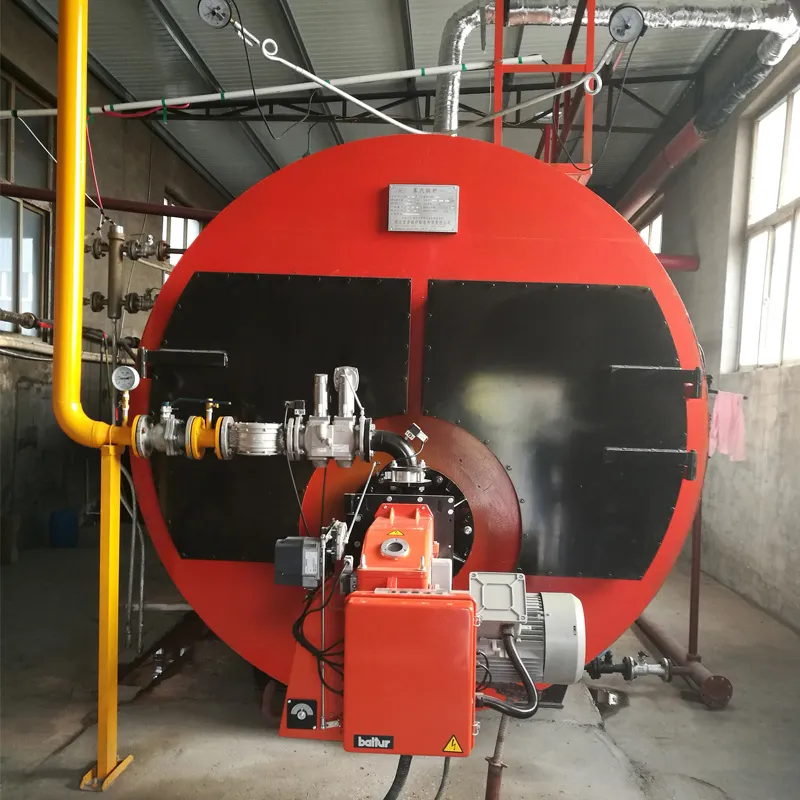
Nov . 26, 2024 15:00 Back to list
Effective Water Treatment Solutions for Steam Boiler Systems
Steam Boiler Water Treatment Ensuring Efficiency and Longevity
Steam boilers are critical components in various industrial operations, providing essential steam for processes such as power generation, heating, and manufacturing. However, the efficiency and longevity of these systems are heavily influenced by the quality of water used within them. Proper water treatment is essential to mitigate issues such as boiler scale formation, corrosion, and other operational challenges. This article discusses the importance of steam boiler water treatment, common issues that arise without it, and effective strategies for maintaining water quality.
Importance of Water Quality in Steam Boilers
Boilers operate by heating water to produce steam, which then drives turbines or provides heat for various applications. The water used in these systems can contain a range of impurities and contaminants, including minerals, dissolved gases, and organic matter. When these substances are present in significant amounts, they can lead to a number of problems
1. Scale Formation Minerals like calcium and magnesium can precipitate out of the water, forming scale on the internal surfaces of the boiler. This scale acts as an insulating layer, reducing heat transfer efficiency and leading to higher energy consumption. In severe cases, scale buildup can cause overheating and structural damage to the boiler.
2. Corrosion Dissolved gases, particularly oxygen and carbon dioxide, can cause corrosion in boiler systems. Oxygen can lead to pitting corrosion, while carbon dioxide can form carbonic acid, which also contributes to localized corrosion. Corrupted surfaces compromise the safety and efficiency of the boiler, ultimately leading to costly repairs or replacements.
3. Foaming and Carryover Impurities can also cause foaming in the boiler water, which can lead to carryover of water into the steam. This carryover can introduce contaminants into the steam system, affecting equipment performance and potentially damaging the processes that rely on steam.
Effective Strategies for Boiler Water Treatment
steam boiler water treatment

To address these issues, a comprehensive water treatment program is essential. Here are some of the key strategies employed in steam boiler water treatment
1. Pre-Treatment of Feedwater The first step in a successful water treatment plan is to treat the feedwater before it enters the boiler. This often involves the use of water softeners to remove hardness minerals, dealkalizers to reduce alkalinity, and activated carbon filters to eliminate organic matter and chlorine. Reverse osmosis systems may also be employed for more thorough purification, especially in areas with poor water quality.
2. Chemical Treatment Once the water is in the boiler, chemical additives play a crucial role in maintaining water quality. Common chemicals used include - Oxygen scavengers (e.g., sodium sulfite) to remove dissolved oxygen and prevent corrosion. - Scale inhibitors (e.g., phosphates or polymers) to prevent scale formation by binding to scale-forming minerals and keeping them in solution. - pH modifiers (e.g., sodium hydroxide) to maintain optimal pH levels, reducing corrosion risks.
3. Regular Monitoring and Maintenance Continuous monitoring of water quality parameters such as pH, conductivity, total dissolved solids (TDS), and hardness is crucial. Regular blowdown procedures help remove accumulated impurities from the boiler. Additionally, scheduled maintenance and inspections can detect issues early, preventing costly breakdowns and unscheduled downtime.
4. Training and Awareness Ensuring that personnel are well-trained in water treatment processes and the importance of maintaining water quality is vital. This includes understanding how to implement treatment protocols and recognizing the signs of water quality issues.
Conclusion
Effective steam boiler water treatment is key to maximizing efficiency, safety, and longevity in industrial operations. By understanding the importance of water quality, implementing comprehensive treatment strategies, and maintaining vigilant monitoring, operators can protect their systems from the damaging effects of impurities. Investing in proper water treatment not only enhances performance but also contributes to the overall sustainability of industrial operations.
-
High-Efficiency Commercial Oil Fired Steam Boiler for Industry
NewsJul.30,2025
-
High-Efficiency Biomass Fired Thermal Oil Boiler Solutions
NewsJul.30,2025
-
High Efficiency Gas Fired Thermal Oil Boiler for Industrial Heating
NewsJul.29,2025
-
High-Efficiency Gas Fired Hot Water Boiler for Sale – Reliable & Affordable
NewsJul.29,2025
-
High Efficiency Biomass Fired Hot Water Boiler for Industrial and Commercial Use
NewsJul.29,2025
-
High-Efficiency Biomass Fired Hot Water Boiler for Industrial Use
NewsJul.28,2025
Related PRODUCTS






















